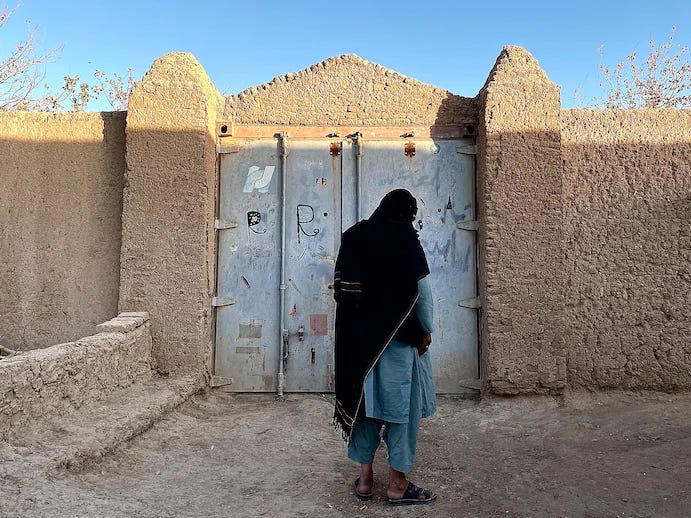Taliban wages campaign of targeted killings against former members of Afghan security forces
It was dark and the streets deserted one night in late August when the former intelligence officer heard banging on his neighbor’s gates.

LASHKAR GAH, Afghanistan — It was dark and the streets deserted one night in late August when the former intelligence officer heard banging on his neighbor’s gates.
Then, women screaming.
“Please don’t kill them,” they pleaded, “have mercy.” The former officer crawled to his roof to see three attackers pulling two men out into the street below him.
The gunmen wore Taliban insignia and drove a confiscated green pickup truck, previously issued to Afghan police and now used exclusively by the Taliban.
The two men had served as border police under the previous Afghan government, according to the former officer. “You killed many of our mujahideen,” he heard one of the attackers say as the group raised their guns and shot both men multiple times in the face and chest.
The bodies were left on the side of the street. The next morning, after the family buried their sons, they fled and changed their phone numbers. “No one knows where they are,” said the former officer, who, like others in this story, spoke on the condition of anonymity out of fear of reprisals from the Taliban.
Scenes like this became a near-nightly occurrence in southern Afghanistan after the Taliban took control of the country in August, according to more than a dozen family members of victims and former Afghan officials, as fighters carried out a broad campaign of targeted killings against their former foes.
The stories in Helmand, Kandahar and elsewhere were echoed in a Human Rights Watch report released Tuesday that documented more than 100 killings and abductions of former Afghan officials since August. The New York-based research group described the violations as on the rise and deliberate.
The killings come despite a pledge to grant amnesty to former Afghan security forces and government officials, demonstrating that building international pressure for the group to respect human rights has done little to sway the Taliban from the use of indiscriminate violence to respond to groups and individuals perceived as threats.


